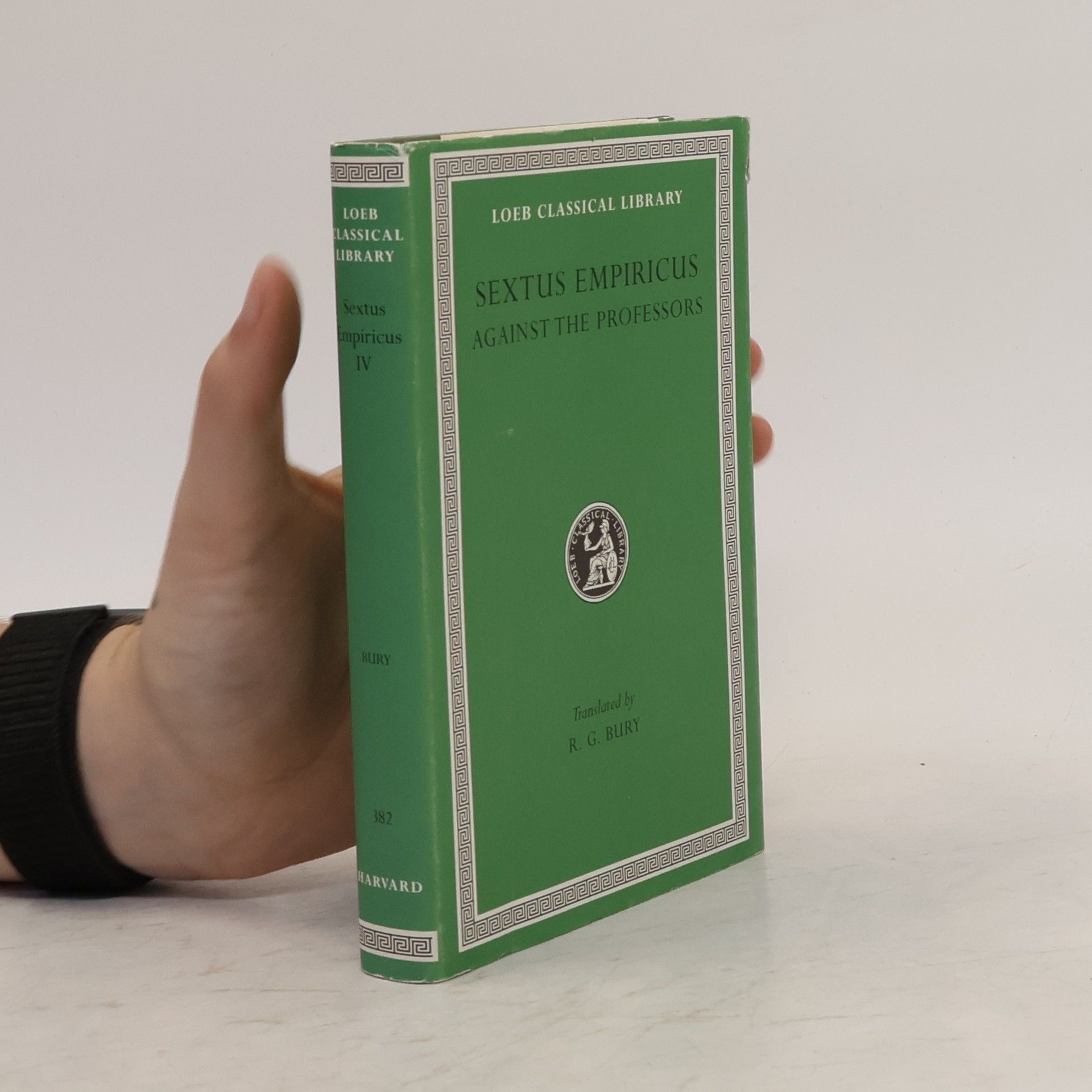Sextus Empiricus (ca. 160–210 CE), exponent of scepticism and critic of the Dogmatists, was a Greek physician and philosopher, pupil and successor of the medical sceptic Herodotus (not the historian) of Tarsus. He probably lived for years in Rome and possibly also in Alexandria and Athens. His three surviving works are 'Outlines of Pyrrhonism' (three books on the practical and ethical scepticism of Pyrrho of Elis, ca. 360–275 BCE, as developed later, presenting also a case against the Dogmatists); 'Against the Dogmatists' (five books dealing with the Logicians, the Physicists, and the Ethicists); and 'Against the Professors' (six Grammarians, Rhetors, Geometers, Arithmeticians, Astrologers, and Musicians). These two latter works might be called a general criticism of professors of all arts and sciences. Sextus's work is a valuable source for the history of thought especially because of his development and formulation of former sceptic doctrines.The Loeb Classical Library edition of Sextus Empiricus is in four volumes.
Sextus Empiricus Book order (chronological)
An ancient Mediterranean physician and philosopher whose philosophical work provides the most complete surviving account of ancient Greek and Roman skepticism. While medical tradition associates him with the "empiric school," as his name suggests, his philosophical views indicate a closer alignment with the "methodic school" on at least two occasions in his writings.
